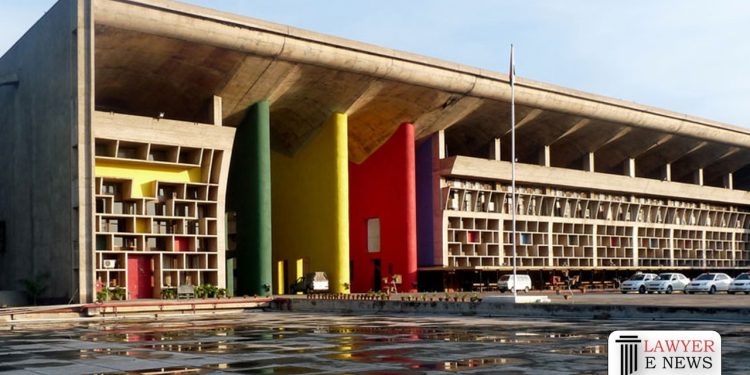Punjab and Haryana High Court Upholds Juvenile’s Trial as an Adult

In a significant judgment, the Punjab and Haryana High Court affirmed the decision to try a juvenile as an adult in a high-profile murder case. The court’s ruling came in response to a criminal revision petition filed by the minor, challenging the order passed by the Juvenile Justice Board.
The case revolves around the accused, referred to as Bholu, who was involved in a murder offense under Section 302 of the Indian Penal Code. Despite being a minor at the time of the incident, the Juvenile Justice Board had earlier transferred the trial to the Children’s Court, treating Bholu as an adult. The decision was subsequently challenged and remanded for fresh consideration by the Supreme Court.
Justice Anoop Chitkara, presiding over the Punjab and Haryana High Court bench, delivered the judgment, stating, “The impugned order suffers from no illegality and has been passed in accordance with the directions of the Hon’ble Supreme Court and the provisions of the Juvenile Justice Act.”
The court’s decision was based on a comprehensive assessment conducted by the Juvenile Justice Board. The assessment included psychological evaluations, clinical assessments, and social investigation reports. After considering the reports and interactions with the accused, the Board concluded that Bholu possessed the mental and physical capacity to commit the offense and comprehend its consequences.
The High Court’s judgment noted that the Board had strictly adhered to the Supreme Court’s directions and the provisions of the Juvenile Justice Act. The court further highlighted that the transfer of the case to the Children’s Court was justified given the nature of the offense and the legislative mandate to conduct a preliminary assessment of the accused’s capacity.
The ruling is expected to have far-reaching implications for cases involving minors in conflict with the law. It reinforces the principle that in certain heinous offenses, the mental and physical capacity of the accused must be evaluated comprehensively, taking into account their understanding of the offense and its consequences.
The decision also emphasizes the need for a balanced approach in cases involving juveniles, considering both their age and the gravity of the offense. The court exercised restraint in discussing the details of the crime to prevent any prejudice against the juvenile.
The judgment is seen as a landmark ruling, providing clarity on the legal framework for assessing the capacity of juveniles in conflict with the law. It establishes guidelines for conducting assessments and highlights the importance of adhering to due process and the principles of natural justice.
The defense and prosecution, as well as legal experts, are closely monitoring the case due to its implications for future trials involving juveniles. The trial will now proceed in the Children’s Court, expediting the process as per the court’s order.
D/D. 03.05.2023.
Bholu, a ‘Juvinile in conflict with law’ vs Central Bureau of Investigation






